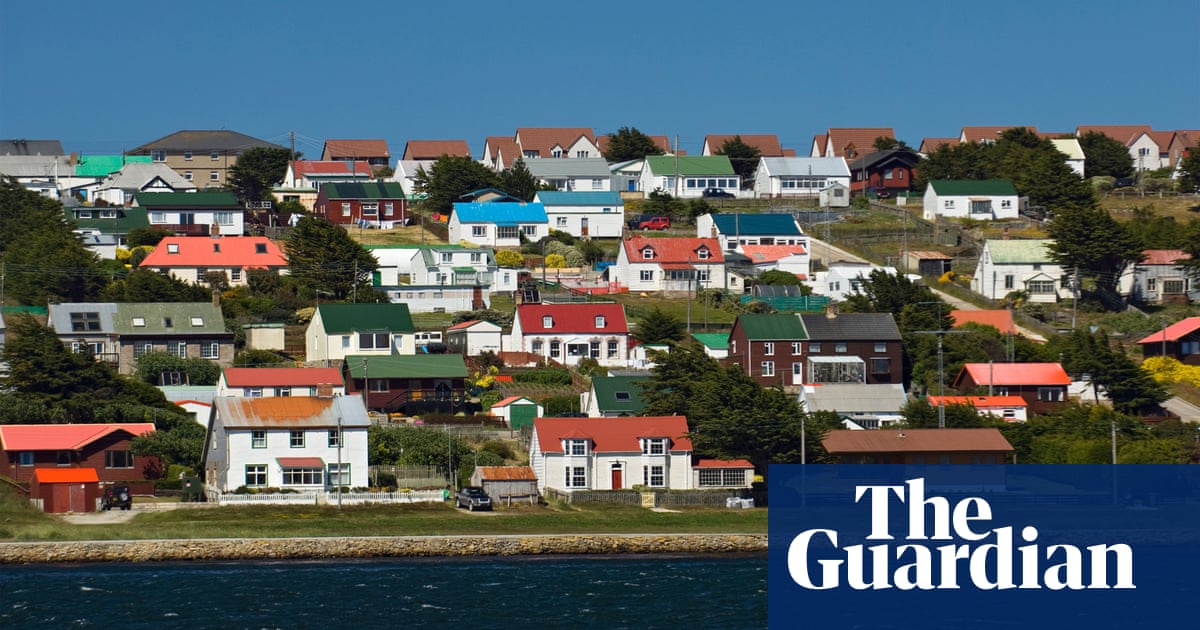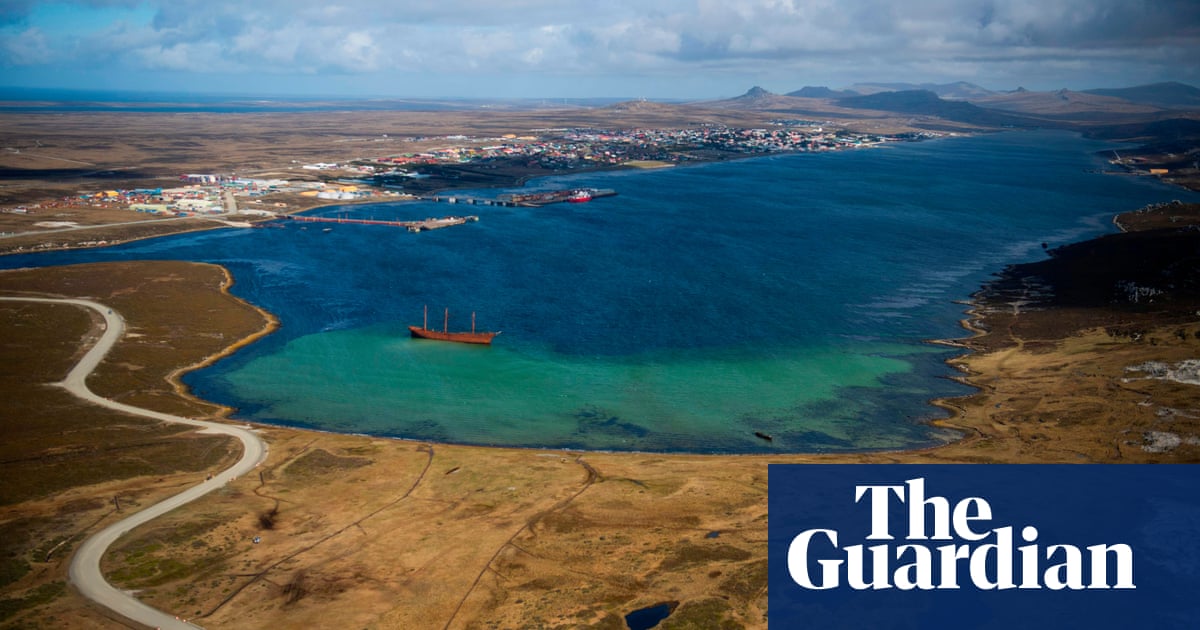
Re Simon Jenkins’ article (Argentinian firebrand Javier Milei is right about one thing: British sovereignty of the Falklands must end, 24 November), like any former colony, Falkland Islanders have a right to self-determination, recognised by the UN.
In 2013, with a 92% turnout of the electorate, under international observation, 99.8% of voters in the Falkland Islands chose to remain an overseas territory of the United Kingdom. The only colonialist in this situation is Argentina, wishing to annex territory that was never its own. It is difficult to see any point of substance in Jenkins’s argument. The islands’ status as a British overseas territory has nothing to do with imperial gestures, and everything to do with the wishes of the population, democratically expressed.
I would recommend to anyone who thinks otherwise that they should visit the islands. Through their own hard work, with no subvention from Britain other than the cost of defence (about 0.5% of the UK’s defence budget, in return for which the UK has use of an outstanding training area), the Falkland Islanders have built up a thriving, well-educated society.
The South Atlantic Environmental Research Institute in Stanley is a world leader in subpolar science, the understanding of which is crucial to our efforts to mitigate the effects of anthropogenic climate change. The UK should be as proud to be linked with the Falkland Islands as the islanders are to be linked with the UK.
Dr Nigel Haywood
Governor, Falkland Islands, 2010-14
Simon Jenkins cannot understand why Britain continues to make “imperial gestures”, like spending £60m a year to pay for the upkeep and defence of the Falkland Islands, or by sending the Royal Navy to far-flung outposts of the old empire. I can answer that for him quite easily. It’s a part of the price we pay for a permanent seat on the UN security council.
Arguably the most important role in world politics, Britain’s presence on the council ensures the country’s continued influence over global events. Our military flexing may not appear as powerful as it once was, but, together with nuclear armament, it serves as a reminder to the world that, although the geography of empire may have considerably shrunk, British influence has not.
As for the notion that a 99-year lease deal with Argentina might be a better option for the Falkland Islands, I’d suggest that the experiment of Hong Kong would be enough to deter any of its residents from such consideration.
In the end, the fact remains that the Falkland Islanders are not native, nor have any historical or contemporary allegiance, to Argentina, and that the latter’s claims to the islands have never been anything more than a political distraction from Argentina’s own internal problems. We can only hope, for the sake of the Argentinians themselves, that the new Argentinian government has more up its sleeve than another rallying cry to the myth of the Malvinas.
Glenn D Barker
Victoria, British Columbia, Canada
Simon Jenkins is wrong in his assessment of the Falklands: it has nothing to do with “the lasting cult of British imperialism”. Perhaps an agreement could have been reached in the early 1980s and sold to the islanders, but, from the moment Argentinian troops landed on the islands, negotiation was no longer an option. The only outcome that could be contemplated at that point was the unconditional withdrawal of Argentinian forces and return of the islands to sole British rule. Anything less would have supported the proposition that armed incursion might achieve a favourable result. I’m sure I don’t need to draw the obvious parallels with current affairs. The loss of lives was deeply regrettable, but the ongoing cost of one quarter to one-third of a percent of GDP is a price worth paying to protect the principle of self-determination.
Mark Nolan
London
Javier Milei’s hopes of the Falklands being handed over to Argentina in the same way Hong Kong was handed back to China are entirely unfounded as a 99-year lease has not been previously established (Falklands sovereignty not up for discussion, says Rishi Sunak, 21 November). Despite this and the Argentinian president-elect’s acclamation of Margaret Thatcher, Rishi Sunak should not be so dismissive of Milei’s desire for diplomatic discussions of the Falklands’ sovereignty. Ultimately, the Falkland Islands are Britain’s lingering grip on imperialism, and this grip is costing the British taxpayer roughly £60m to defend each year. The decolonisation of the Malvinas is long overdue.
Maya Richardson
Newcastle upon Tyne












